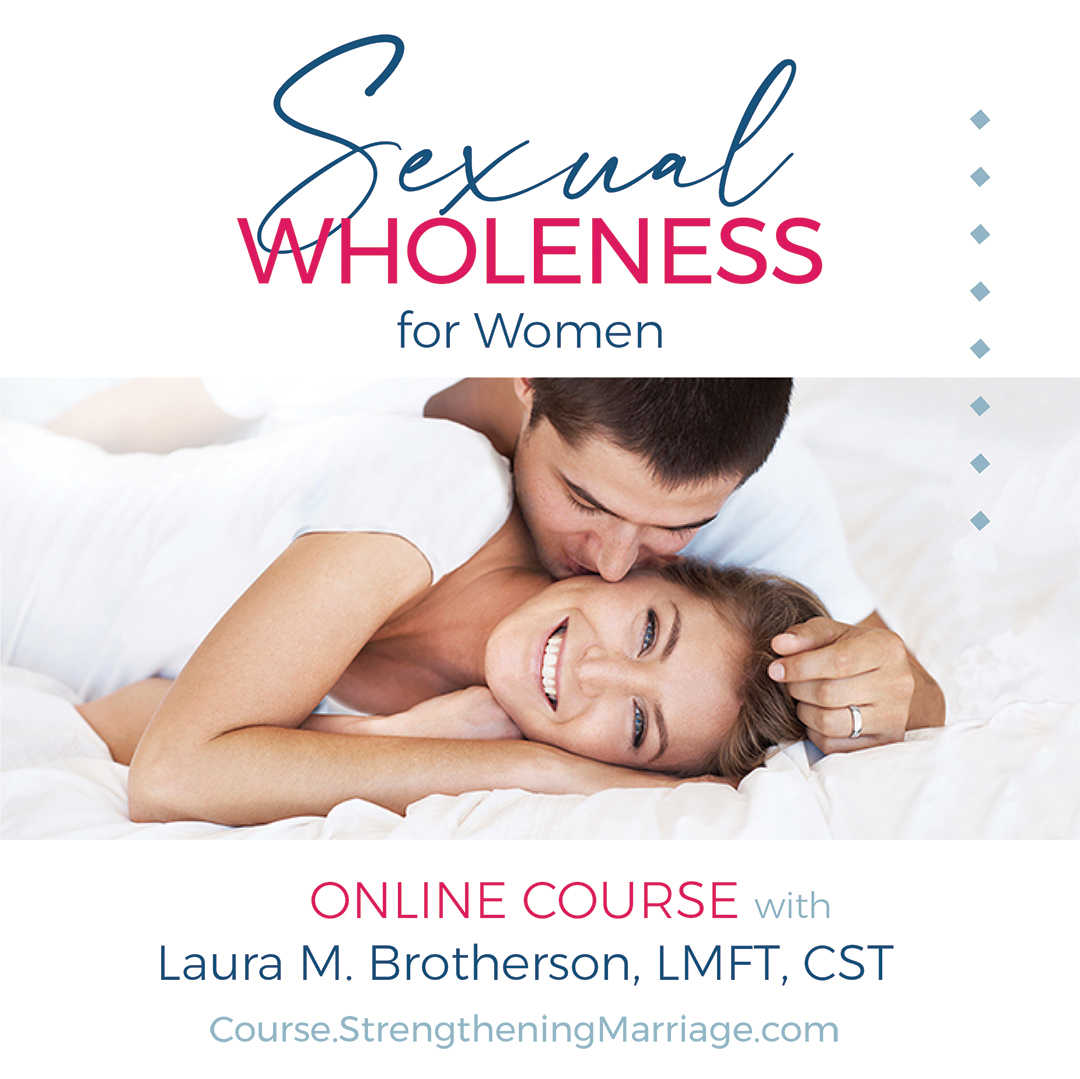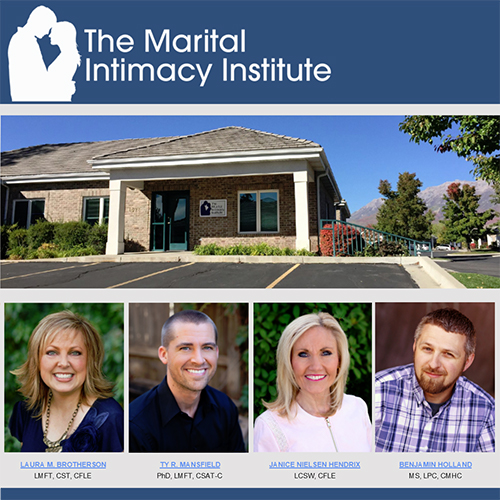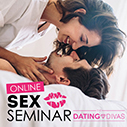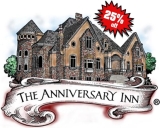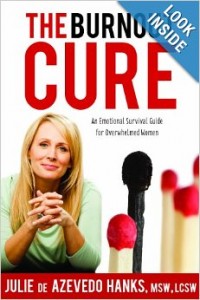 I LOVE, LOVE, LOVE this book written by my friend and fellow therapist, Julie de Azevedo Hanks — The Burnout Cure: An Emotional Survival Guide for Overwhelmed Women! What a great title!
I LOVE, LOVE, LOVE this book written by my friend and fellow therapist, Julie de Azevedo Hanks — The Burnout Cure: An Emotional Survival Guide for Overwhelmed Women! What a great title!
This book is a great complement to the work I do with people who are struggling to develop healthy emotional boundaries. It is going to be very helpful for women everywhere! So glad this book is now available!
Here’s what I shared with Julie as an endorsement for her fabulous book:
“I love this book! This emotional survival guide is jam packed with helpful suggestions sorely needed by today’s overwhelmed women in order to be better stewards of their personal resources, to nurture a stronger sense of self, and to prevent mental, emotional and physical burnout. Julie gives women permission to have healthier emotional boundaries and to balance the many demands women face today. This book will be a real blessing in many people’s lives! I especially love her concept of keeping a “Ta Da” list not just a “To Do” list to remind women of all the good things they accomplish every day!“
~ Laura M. Brotherson, MS, MFT, Marriage and Intimacy Expert, Author of And They Were Not Ashamed–Strengthening Marriage through Sexual Fulfillment, Founder of StrengtheningMarriage.com.
Here are a few other thoughts and reflections as I was reviewing this book:
- I love that she used one of my all-time-favorite quotes by Orson F. Whitney on trials!
- I love that you quote Brene Brown the fabulous shame researcher!
- I love the concept — We don’t need to feel better, but to get better at feeling!
- I like how she not only shares client stories, but a little bit of her personal story as well. It helps the reader to feel like Julie’s a real person, and has some personal experience with what she is teaching.
- I love (and endorse!) the tools suggested to use with emotions:
- Journaling
- Connecting with others
- Creative expression
- Exercise and physical activity
- Prayer
- Counseling/ therapy
- Mindfulness exercises
VIDEO — Listen to Julie Hanks discuss her new book on KSL’s Studio 5:
Your Body Is an Instrument, Not an Ornament
By Julie de Azevedo Hanks, LCSW
I’ve asked women across the country the questions, “What do you most want to change about yourself?” Across the board, whether women are twenty years old or ninety, the number-one thing they wanted to change about themselves was their physical appearance—their weight!
Women seem much more likely than men to judge themselves as overweight (even when they are not), and women are also more likely to link body image with self-esteem. Have you ever felt dissatisfied with your body without feeling bad about yourself as a person?
The analogy of our bodies as ornaments or instruments seems to fit our personal assessment of ourselves. I think collectively we tend to see our bodies as ornaments, not instruments. An instrument is a tool that serves a particular purpose. It has a specific job to do and can do it well, especially in the right hands. An ornament is something decorative; its purpose is to beautify something else (like an ornament on a Christmas tree) or to draw attention to itself, but it is usually without any practical purpose.
There is nothing wrong with being interested in appearing graceful or beautiful; it’s healthy to want to be attractive, to want to be your best self physically. But it becomes unhealthy when the desire is at the expense of not feeling good about ourselves and appreciating the gift of our bodies. So let’s take a look at this whole business of wanting to change our bodies.
None of us has a perfect body—ornamentally or instrumentally. If you are convinced certain people do have perfect bodies, can you absolutely know they are truly grateful, happy, and peaceful? I know many people who appear to be very beautiful by our current standards but who are miserable.
If you struggle to love the gift of your physical body, try this. Stop and think about all the things your body can do that got you where you are today. Even if your knees are a little creaky or your eyes are not as clear as they used to be, think of all the cool things your body can do. Pick up an anatomy book. It’s amazing. Do you realize how many things your body orchestrates so well without any input from you? For example, it can heal a cut, change oxygen into carbon dioxide, digest your food, pump blood through all your arteries and veins, stand up and walk, blink your eyes, or coordinate the vibration of your vocal cords to produce intelligible sounds and speech. It really is so incredible to just have a body regardless of its limitations or abilities.
So next time you look in the mirror, what if you count the amazing things about your physical capabilities instead of judging how you appear? If you stop seeing yourself as an ornament, what exactly is the purpose of the instrument you have been given?
(Excerpt from The Burnout Cure: An Emotional Survival Guide for Overwhelmed Women)
















